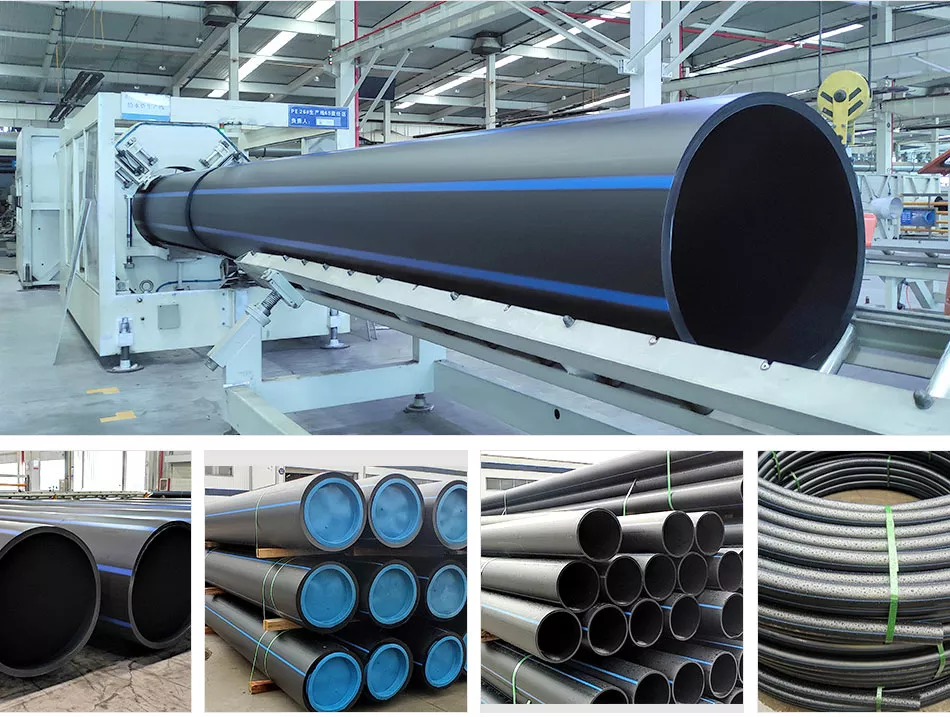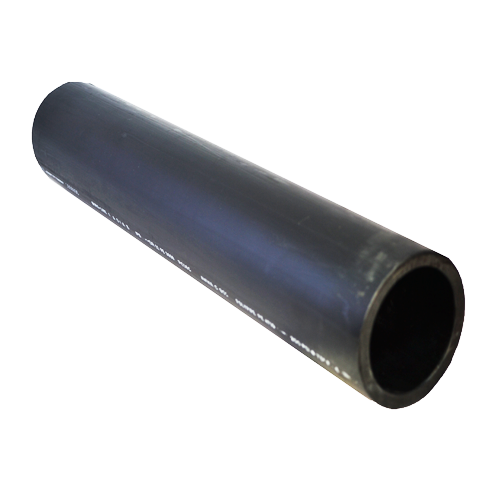A Comprehensive Overview to the Various Uses HDPE Pipeline in Building and Industry
HDPE pipes have actually become a crucial component in modern-day building and industrial applications. Their distinct residential or commercial properties, such as resistance to corrosion and light-weight style, make them suitable for a vast array of uses. From water supply systems to farming irrigation, HDPE pipelines provide services that enhance efficiency and sustainability. Understanding their diverse applications is essential for professionals aiming to maximize facilities. What specific benefits do these pipelines offer each market?
Water System and Distribution Solutions
Water and circulation systems are important components of city facilities, typically counting on high-density polyethylene (HDPE) pipelines for their durability and effectiveness. These systems transport drinkable water from therapy facilities to customers, making sure availability and safety. HDPE pipelines are preferred for their resistance to rust, chemicals, and extreme temperatures, which enhances their long life and decreases upkeep costs. Additionally, their light-weight nature permits for easier installment and transportation, making them optimal for various city and rural applications.
The versatility of HDPE pipes allows them to be installed in tight rooms and around obstacles, lessening the need for considerable excavation (Pipe Manufacturing Midland TX). Moreover, their smooth interior surface minimizes friction losses, enhancing water circulation prices. As cities proceed to expand, the demand for trusted water supply systems raises, positioning HDPE pipelines as a lasting option for modern-day framework projects. Their proven record makes them a favored option among engineers and urban planners alike
Wastewater Management and Treatment
Reliable wastewater administration and therapy are important for maintaining public health and ecological quality. HDPE pipes play a vital duty in this procedure as a result of their sturdiness, resistance to rust, and capability to withstand rough chemicals. These pipelines are frequently utilized in different applications, consisting of sewer systems, stormwater drainage, and wastewater therapy centers. Their lightweight nature helps with easier installation and transport, reducing labor expenses and time.
On top of that, HDPE pipelines have a smooth indoor surface area that reduces friction loss, promoting efficient flow rates. They are also much less susceptible to leakages and failings contrasted to standard materials, making certain that impurities are had efficiently. Their flexibility permits for flexibility in different dirt conditions, making them ideal for diverse ecological settings. As industries increasingly prioritize lasting techniques, the use of HDPE pipelines in wastewater monitoring systems straightens with objectives for lowering ecological influence and improving resource healing.
Agricultural Watering Solutions
In agricultural setups, reliable watering options are essential for enhancing crop returns and taking care of water sources. HDPE (High-Density Polyethylene) pipes play a vital role in modern irrigation systems as a result of their sturdiness, versatility, and resistance to deterioration. Their ability to stand up to high stress makes them excellent for both surface and subsurface watering applications, making sure uniform water distribution across fields.
Farmers can use HDPE pipes in drip irrigation systems, which provide water straight to plant origins, reducing wastage and promoting healthy growth. Furthermore, these pipelines are light-weight and simple to set up, decreasing labor costs and installment time. Their long lifespan and reduced maintenance demands further improve their charm in agricultural techniques.
HDPE pipes are eco friendly, as they can be reused and do not leach damaging chemicals right into the soil. This makes them a sustainable option for farmers intending to adopt environmentally friendly agricultural approaches while taking full advantage of productivity.
Industrial Applications and Processes
Convenience is a characteristic of HDPE pipes, making them crucial in numerous commercial applications and procedures. These pipes are commonly utilized in chemical processing industries as a result of their outstanding resistance to a vast array of destructive substances. HDPE's lightweight nature, combined with high tensile toughness, enables very easy installation and long-term performance sought after environments.
In the oil and gas sector, HDPE pipelines play an important function in transporting hydrocarbons and gases, many thanks to their sturdiness see here now and adaptability - hdpe pipe in stock Midland TX. Furthermore, they are utilized in mining operations for the transport of slurry and various other products, where standard piping systems might fail
HDPE pipelines are progressively made use of in making centers for water supply lines and wastewater administration. Their capacity to endure extreme temperatures and pressures makes them suitable for a selection of industrial procedures. Overall, HDPE pipelines add greatly to performance and safety across varied industrial applications.
Stormwater Administration and Drainage Solutions
Stormwater monitoring and drain systems are important parts in city infrastructure, designed to manage excess rainfall and decrease flooding threats. High-density polyethylene (HDPE) pipes are significantly used in these systems because of their durability, versatility, and resistance to deterioration. These pipes successfully carry stormwater away from inhabited locations, reducing surface drainage and avoiding waterlogging.
HDPE's light-weight nature assists in easier installment, minimizing labor costs and construction time. Furthermore, its resistance to chemicals and ecological stress factors warranties longevity and reliability in different climates. Along with traditional water drainage applications, HDPE pipelines are likewise employed in innovative remedies such as eco-friendly facilities, that includes rain gardens and absorptive sidewalks.

Regularly Asked Inquiries
How Does HDPE Pipe Contrast to PVC Pipeline in Cost?
As a whole, HDPE pipe has a tendency to be extra costly than PVC pipe due to its enhanced resilience and versatility. Nevertheless, long-term price considerations, such as upkeep and life expectancy, might prefer HDPE in particular applications.

What Is the Life Expectancy of HDPE Pipeline Under Numerous Problems?
HDPE pipelines typically have a life-span of 50 to 100 years, relying on ecological conditions, installment techniques, and usage. Elements such as temperature, dirt type, and direct exposure to chemicals can considerably affect their durability.
Can HDPE Water Lines Be Recycled After Usage?
Yes, HDPE pipes can be recycled after usage. The recycling process involves melting down the material, permitting it to be repurposed right into new products, thereby advertising sustainability and decreasing ecological influence connected their website with plastic waste.
Exist Any Kind Of Details Installment Obstacles With HDPE Pipelines?
Setup difficulties with HDPE pipelines consist of correct jointing strategies, making sure ample trench conditions, and taking care of thermal expansion. In check this addition, knowledgeable labor is required to handle specific equipment, which can make complex the installment process in numerous atmospheres.

What Qualifications Should I Search For When Buying HDPE Pipelines?
When acquiring HDPE pipelines, one must try to find qualifications such as ASTM, AASHTO, and ISO, which confirm top quality and compliance with market criteria, guaranteeing longevity and performance in numerous applications. - hdpe pipe suppliers Midland TX